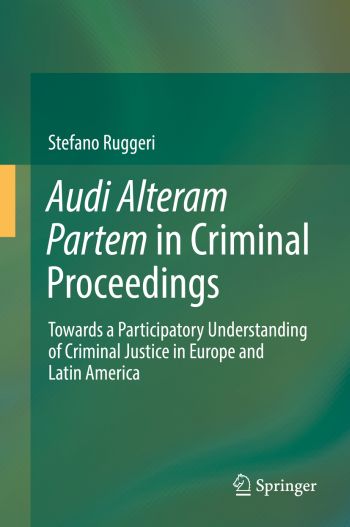
This book analyses current developments in Europe and Latin America towards the greater involvement of the parties in the administration of criminal justice. Focusing on both national criminal proceedings and transnational cases, this study employs a comparative law approach to examine the shift experienced by Italy and Brazil from the long tradition of mixed criminal justice to unprecedented adversarial trends.
The identification of common needs and divergences from the national approach to criminal justice paves the way for a subsequent analysis of new solution models emerging from international human rights law and EU law. To a great extent, these developments are due to the increasing impact of international human rights case-law on the criminal justice systems of the countries in question. The book concludes by proposing a set of qualitative requirements for a participatory model of criminal justice.